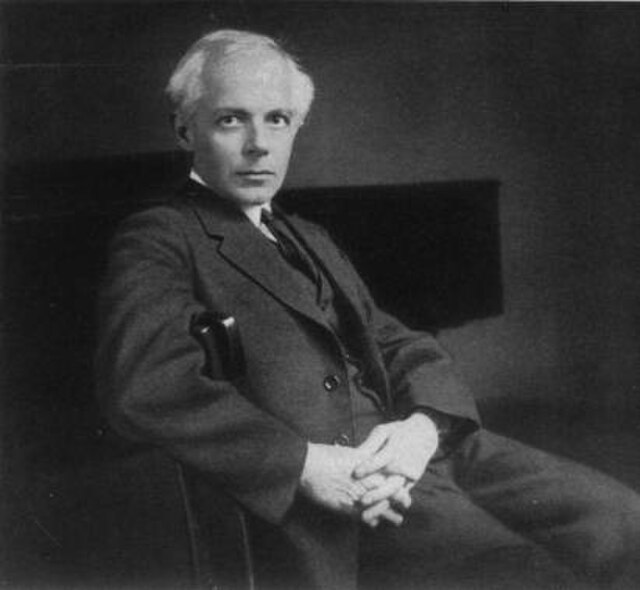The Miraculous Mandarin Op. 19, Sz. 73, is a one act pantomime ballet composed by Béla Bartók between 1918 and 1924, and based on the 1916 story by Melchior Lengyel. Premiered on 27 November 1926 conducted by Eugen Szenkar at the Cologne Opera, Germany, it caused a scandal and was subsequently banned on moral grounds. Although more successful at its Prague premiere, it was generally performed during the rest of Bartók's life in the form of a concert suite, which preserves about two-thirds of the original pantomime's music.
Béla Bartók in 1927
Béla Viktor János Bartók was a Hungarian composer, pianist and ethnomusicologist. He is considered one of the most important composers of the 20th century; he and Franz Liszt are regarded as Hungary's greatest composers. Through his collection and analytical study of folk music, he was one of the founders of comparative musicology, which later became known as ethnomusicology.
Béla Bartók in 1927
Bartók's signature on his high-school-graduation photograph, dated 9 September 1899
Béla Bartók using a phonograph to record Slovak folk songs sung by peasants in Zobordarázs (Slovak: Dražovce, today part of Nitra, Slovakia)
Bartok and Pásztory




